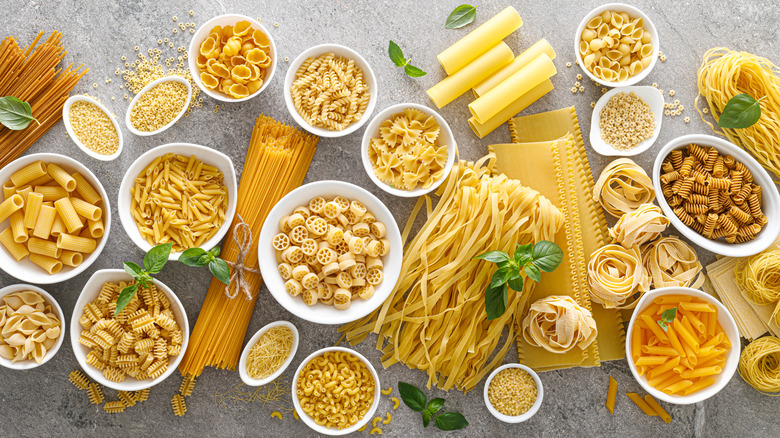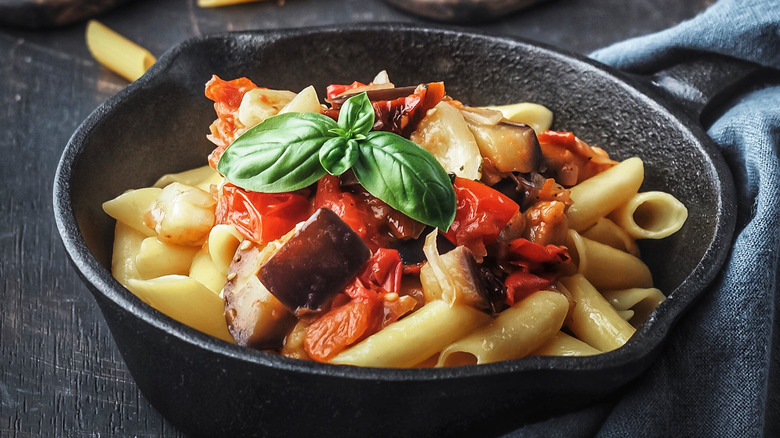The Real Reason Pasta Cravings Are So Powerful
Let's be honest: Few things in the world can beat the feeling of digging into a big bowl of pasta with some buttery garlic bread on the side. Pasta cravings are real for many of us, and nothing else seems to work at times when we need a generous serving of freshly made pasta garnished with oregano. There may be a rational explanation for this, by the way. As per a study published in The Journal of Nutrition, cravings have links to "oral complex carbohydrate sensitivity." One of the researchers involved in the study, Julia Low of Deakin University, said, "Those who were most sensitive to the carbohydrate taste ate more of these foods and had a larger waist."
According to The Healthy, this means that, for some of us, carb-heavy food products taste a lot better. Also, according to several experts, when we're dealing with difficult or stressful situations, we're likely to turn to our comfort food options such as pasta, bread, cake, and more (via Inverse).
It's more complex than you think
There is science behind some of our strongest cravings, as per Inverse. Eva Selhub, a former instructor at Harvard Medical School, said, "Anything that challenges our state of balance, or any situation of lack, is deemed a stress. This could be hunger, an uncomfortable position, feeling cold, or even wanting to understand something better."
When this happens, most of us are likely to look for ways to feel better, such as putting on something warm or eating a big bowl of homemade pasta. Selhub explained, "Carbohydrates especially lead to the increase of serotonin levels, which give us the sense of feeling better." According to Nancy Cohen, a former professor of nutrition at the University of Massachusetts, carbohydrates can be very useful in stressful times because they can help us feel better. However, for the sake of our health, she believes that moderation is the best approach. "Comfort foods and treats in moderation can be part of the menu, especially in these stressful times," she said, referring to the COVID-19 pandemic.

